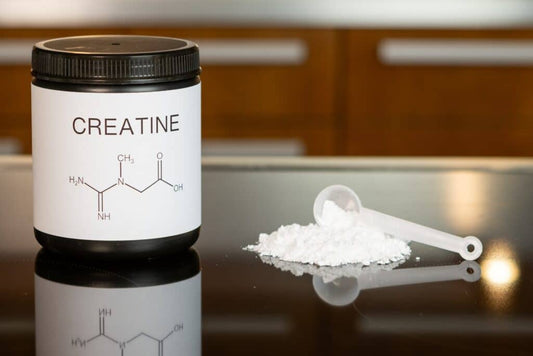How Immune and Brain Health Are Connected

When recovering from a long illness, it’s natural to expect a smooth return: improved energy, mental sharpness, and robust health. Yet, for those struggling with long COVID, fatigue and brain fog can linger far longer than expected. Simple tasks felt overwhelming. Chronic inflammation disrupts immune balance, leading to exhaustion and mental fog.
Although many see COVID-19 primarily as a respiratory illness, it underscores how deeply the immune system and the brain intertwine. Prolonged immune activation undermines vitality and focus, highlighting the need to examine how our defenses shape energy and cognition.
Understanding the Body’s Immune System
The immune system is a potent guardian. It identifies and neutralizes foreign intruders, maintaining balance. Often, this process goes unnoticed in daily life. Yet vigilance can shift into overdrive when chronic stress or infections persist. Brief inflammation is beneficial, isolating threats, but prolonged inflammation erodes well-being.
Fatigue rises, clarity wanes and a lingering fog emerges. A robust immune response fosters steady energy, swiftly handling pathogens. Freed from continual battles, the body channels energy into cognitive and physical tasks instead of fighting low-level threats.
The Brain’s Role in Energy Management
The brain uses 20% of the body’s energy to manage vital tasks, cognition, and heartbeat. Neural networks fire, needing oxygen, glucose, and nutrients. When the immune system overexerts itself, resources may shift away from the brain, compromising cognitive processes.
Sometimes, this redirection is helpful for survival, but if prolonged, it undermines mental sharpness. Brain fog emerges, making everyday tasks feel heavy. Neuroinflammation worsens this, as activated microglia release signals linked to muddled thinking, poor concentration, and sluggish reflexes. Maintaining optimal cognitive performance hinges on balanced immune activity and adequate nutrients.
Inflammation and Cognitive Fatigue
Inflammation is the body’s healing system in short bursts, repelling microbes and repairing tissues. Problems arise, however, when it lingers, becoming chronic. Proteins known as cytokines can cross the blood-brain barrier and affect neuronal function, sometimes disrupting neurotransmitters and causing fatigue or confusion.
Even a mild cold can illustrate how an overactive immune response dulls mental acuity. More serious conditions can lead to deeper fatigue, depression, and cognitive decline, often rooted in lifestyle factors like high sugar intake or chronic stress. On the bright side, adopting healthier habits—moderating exercise, refining diet, and reducing stress—can curb excessive inflammation.
Ultimately, these proactive measures encourage balanced immune processes, renewing both physical vigor and mental clarity.
The Role of Supplements in Supporting Brain and Immune Health
For those struggling with lingering symptoms of long COVID, like fatigue and brain fog, addressing both immune function and cognitive health is key. This is why supplements like Olivium are specifically designed to support the immune system— potentially helping improve brain fog, and restore energy. It is formulated with 8 unique ingredients and has the potential to support cognitive function and energy recovery by providing a natural immune boost. This is why ingredients such as Olive Leaf Extract, Vitamin B12, and Acetyl-L-Carnitine are carefully selected to help you be at your best!
Simultaneously, focusing on the best supplements for brain fog can make a meaningful difference in cognitive sharpness. These often contain nutrients like omega-3 fatty acids for neuronal membrane support or adaptogenic herbs that modulate stress responses. Including these in a balanced regimen can reinforce the link between physical vigor and mental clarity.
Stress and the Brain-Immune Connection
Stress rarely travels alone, bringing tension headaches, digestive troubles, elevated blood pressure, and more. Persistent cortisol often suppresses immune functions and perpetuates inflammation. While brief stress boosts alertness, chronic exposure derails immune balance, intensifying fatigue, confusion, and emotional vulnerability.
Over time, the brain’s constant state of vigilance can leave you mentally exhausted, turning simple tasks into daunting challenges. Stress management strategies—like mindful breathing, moderate exercise, and journaling—can moderate cortisol and reduce inflammation. This means that in addition to immune boosting supplements, taking short breaks, such as going for a walk or practicing relaxation techniques, may contribute to a greater sense of mental clarity and sustained energy. Over time, these small changes add up and gradually, these efforts restore balance and enhance overall well-being.
Lifestyle Interventions to Support Vitality
Enhancing immune and brain health involves an integrative approach. Lifestyle factors—diet, exercise, sleep, and mental health practices—are interconnected gears in a machine. Well-oiled gears support each other; if one gear rusts, the rest become strained.
-
Exercise: Moderate physical activity improves cardiovascular function and helps regulate body weight, which lessens inflammation. In turn, it supports clearer thinking. Regular movement also boosts the production of endorphins, chemicals that energize the mind and protect it from stress-induced harm. Exercise primes the body for resilience.
-
Sleep: Deep rest is when the body repairs cells, consolidates memories, and flushes metabolic waste from the brain. Insufficient or poor-quality sleep has been linked to heightened inflammatory markers and weakened immunity. Even an extra 30 minutes of rest can mitigate stress, improve focus, and support better overall health.
-
Nutrition: Whole foods—like colorful vegetables, lean proteins, and healthy fats—offer the nutrients that cells require to function at their best. Cooking at home, experimenting with herbs and spices, and exploring a variety of food groups can help keep meals both nutrient-dense and enjoyable.
-
Mindfulness and Social Connections: Activities like yoga, guided meditation, or simply keeping a gratitude journal can help lower stress levels. Additionally, healthy social ties correlate with stronger immune markers and better emotional health. Human interaction can be a potent buffer against life’s hurdles, creating a sense of belonging and shared resilience.
Integrating these elements bolsters both body and mind. The benefits often manifest gradually—fewer illnesses, steadier moods, and a sense that thinking tasks, once burdensome, have become more fluid. Over time, a holistic approach fortifies the synergy between immune cells and neurons, helping each do its job more effectively.
Navigating the Road to Clarity
Life’s demands never cease. Maintaining consistent energy and mental clarity hinges on balancing immune function and cognition. Even dedicated health efforts, like marathon training, can provoke unaddressed inflammation, fueling fatigue. Yet, regaining equilibrium is possible.
With targeted nutrition from products such as Olivium, quality sleep, and proper stress management, the immune system stays nimble, and the brain remains sharp.



